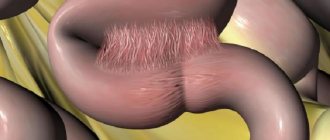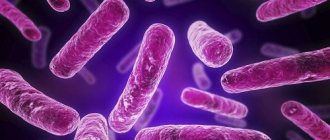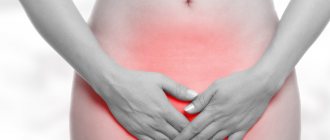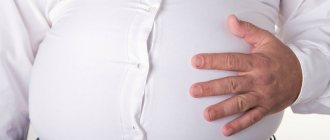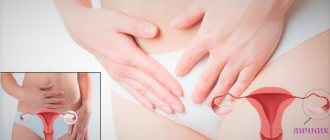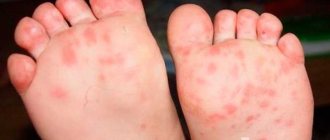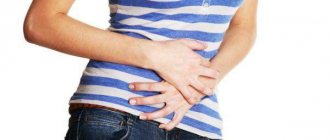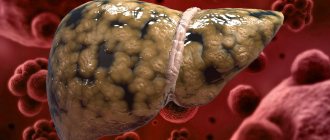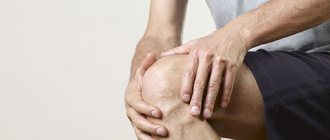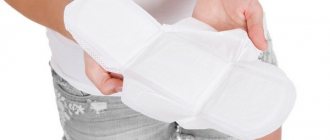If a person has damaged the rectum, then it is important for him to know the reasons, and they can be both external and internal, which destroy the integrity of the organ and the body as a whole. Such damage is serious and requires special treatment and care of the injured area.
Advice: if you have injured your rectum, immediately consult a specialist for advice, diagnosis and advice on further treatment.
Pay due attention to intestinal injuries and consult a doctor promptly.
Causes
The intestines are considered one of the vital organs, so extensive damage often results in disability or death for the patient. Due to the seriousness and relevance of the problem, the adult population is required to have not only a superficial understanding, but also clear knowledge about rectal injuries, how to obtain them and methods of therapy.
Causing injury and mutilation is considered a complex and difficult task, since the final part of the large intestine is located deep inside the body. Therefore, fortunately, there are not many cases of damage to the rectum, and almost all of them are caused by extreme situations in which a person finds himself due to life circumstances. To date, experts have been able to identify the most common causes of injury to the anus.
- Anatomical features of the structure.
- Regular carrying or lifting of heavy loads or objects associated with professional activities.
- Chronic constipation caused by intestinal dysfunction.
- Great stress on the organ during the birth process, caused by high intra-abdominal pressure or rupture of the perineum.
- Falling onto sharp or protruding objects, such as a picket fence, pipe, stick, or tree roots.
- Injury from bone fragments in pelvic fractures.
- Careless conduct of medical procedures - endoscopic examinations, enemas, determination of rectal temperature.
- Injuries caused by firearms.
- Rupture due to the introduction of air.
- Injuries to the rectum after anal sex or the use of intimate toys and accessories.
Disease prevention
No one is immune from injuries and unforeseen situations in life. But at the same time, you can protect yourself by eliminating at least some provoking factors, which mostly depend on the person:
- watch your diet. Avoid foods that are heavy on the stomach, which can cause constipation, which then causes stretching of the intestinal walls and their thinning;
- lead an active lifestyle - moderate physical activity improves digestion and peristalsis;
- If you experience any alarming symptoms that may indicate gastrointestinal diseases, you should immediately consult a doctor.
Classification
Rectal trauma is classified as a rare but serious injury. Due to the lack of a clear classification, it is customary to distinguish two main groups:
- peacetime injuries received at work, at home, or, less commonly, while playing sports;
- gunshot wounds received during hostilities.
It should be noted that in each specific case, the wound channel may be located on the side of both the outer layer of the organ and its mucous epithelium.
Symptoms
Diseases and injuries of the rectum are characterized by pronounced symptoms. If mucous or muscle structures are injured, a person experiences the following symptoms:
- sharp pain in the anorectal area, as well as in the lower abdomen;
- discharge of blood from the anorectal canal or the presence of its impurities in the stool;
- false tenesmus (the urge to evacuate);
- dysfunction of the anal sphincter;
- release of feces or gases from the wound due to complete rupture of the walls;
- the presence of purulent discharge;
- progression of the inflammatory or infectious process.
When injured, the likelihood of feces and air entering the abdominal cavity increases.
Diagnostics
Determination of the type and nature of intestinal injury is carried out based on the results of the primary diagnosis. It consists of the following manipulations.
- Taking an anamnesis to determine the time and mechanism of injury.
- A physical examination performed on a gynecological chair in a lateral, dorsal, or knee-elbow position to assess the nature of the injury and detect discharge of blood, stool, or gas.
Laboratory research
When a patient visits an outpatient medical facility, the following diagnostic measures are carried out.
General blood analysis
It is carried out to check indicators if internal bleeding is suspected or the onset of an inflammatory process as a result of injury to the anus. The collection is made capillary from the patient’s finger in the morning on an empty stomach. The level of hemoglobin and the content of cells that make up the blood: lymph and leukocytes, as well as the erythrocyte sedimentation rate (ESR) are checked.
General urine analysis
This is done to rule out the presence of concomitant diseases. When a patient consults a doctor, he is prescribed to identify pathological or inflammatory processes in the organs of the genitourinary system. For the study, 100-200 ml of urine is needed, the material should be collected no earlier than 1.5 hours before the procedure.
Coagulogram
This method allows you to determine the degree of coagulation - blood clotting. A decrease in this value indicates the presence of hidden bleeding. The final result is influenced by indicators such as prothrombin index (PTI), activated partial thromboplastin time (APTT), plasma fibrinogen. The collection is carried out in the morning on an empty stomach from the ulnar vein in a volume of 2 liters.
Biochemical blood test
Prescribed for the purpose of studying a wide range of enzymes, organic and mineral substances. The method allows you to determine the nature of metabolic processes occurring in the patient’s body. Changing it makes it possible to identify the presence of any disorders or diseases. The collection is performed on an empty stomach from the ulnar vein in a volume of 5-10 ml.
Blood to determine group and Rh factor
The collection is carried out during the morning hours on an empty stomach from the ulnar vein. To determine both indicators, two tests are performed. At the same time, a compatibility analysis is performed, that is, which blood group other than the native one is suitable for a given individual.
This test is indicated if the patient has significant blood loss and may require a transfusion.
Instrumental methods
The list of instrumental studies includes the following manipulations.
- Rectal examination with a finger, which determines the presence of a foreign body, blood discharge in the rectum, as well as the connection of the wound with its lumen.
- Radiography allows us to identify the location of the injury and its severity, as well as the likelihood of penetration of the injury into the abdominal cavity.
- An ultrasound examination is carried out to assess the condition of neighboring organs, as well as to determine the presence of bleeding, feces, or a foreign body.
- Anoscopy is performed to detect pathological processes developing as a result of injury.
- Diagnostic laparotomy is used if there is a suspicion of a wound penetrating the abdominal cavity.
Based on the diagnostic results and based on the individual characteristics of the body, the nature of the occurrence and nature of the intestinal injury, the doctor can expand the scope of the examination.
The role of the large intestine in human health
Good microflora in the intestines is necessary to destroy harmful bacteria, stop rotting, and allow the body to obtain the necessary amino acids, vitamins and microelements from the incoming food. At the final stage of digestion, residual digestion of food, absorption of residual water and salt solutions, and removal of human waste occur. The main result of complex biochemical processes is the creation and maintenance of strong immunity.
The integrity of the mucous membrane, good peristalsis (muscle contractions) and maintaining the balance of the colon microflora are the main things in the prevention and treatment of the disease. Regular body care is important not only on the outside. Internal general cleaning will help to avoid the appearance of cancerous tumors, heart problems, kidney diseases, liver diseases, allergies, asthma, and arthritis. Digestive problems are the cause of the development of 72 diseases in patients.
The onset of the disease is accompanied by specific symptoms.
Treatment
Depending on the type and size of the injury, the nature of the injury, the current condition of the damaged organ, as well as the discomfort it causes to the patient, the doctor chooses treatment tactics. At the initial stage, immediately after a person goes to a medical institution in the traumatology department, the doctor treats the damaged organ, followed by suturing.
Goals of therapeutic intervention
The purpose of subsequent treatment of the patient in an outpatient setting is:
- limiting the penetration of intestinal chyme into the wound area, as well as into the retroperitoneal space;
- complete surgical treatment of the injured organ;
- restoration of the integrity of the organ itself and its anatomical structures;
- drainage of the damaged area in order to free it from feces and remove foreign bodies (if any);
- restoring the normal functioning of the intestine so that its contents do not stagnate, but are excreted naturally or through a colostomy.
During the implementation of therapeutic measures and after their completion, the patient is recommended a specific diet, which is prepared by the doctor individually for each patient.
Operational measures
The main measures to eliminate the consequences of trauma to the rectum are to use a radical method of treatment. It is carried out in a hospital setting by qualified specialists. Currently, a number of operations are successfully carried out, which, taking into account their type, can be divided into three groups: one-, two- and multi-stage:
- elimination of damage followed by the resumption of the natural movement of feces through the intestinal tract;
- achieving the same goals through the formation of a colostomy (artificial anus);
- creation of antiseptic conditions in the wound area with subsequent drainage of intestinal contents through the formation of a stoma.
During any operation, damaged tissue is sutured.
Post-operative measures
The postoperative period is a crucial time when tissue healing occurs and the functioning of the entire gastrointestinal tract normalizes. In a hospital setting, the patient is prescribed complex treatment, including drug therapy (as indicated), changes in daily routine, and nutritional therapy.
Mode
On the first day after surgery, regardless of the complexity of the operation, the patient is prescribed strict bed rest. If there are no signs of complications and you are feeling well, limited movements around the ward are allowed on the second and third days. In the subsequent period, the patient is advised to have free rest and recovery.
Drug therapy
At the inpatient level, a patient with rectal trauma is required to undergo supportive treatment with drugs of certain groups or their analogues. Prescriptions are made by the attending physician based on diagnostic results, taking into account the severity of the injury and the complexity of the clinical course.
- Antibacterial drugs - Ampicillin, Ceftriaxone, Gentamicin, Azithromycin, Ciprofloxacin, Metronidazole.
- Non-narcotic analgesics - Ketoprofen, Metamizole sodium.
- Antifungal agents - Nystatin, Fluconazole.
- Antiseptics – “Povidone iodine”, “Ethanol”, “Chlorhexidine”, “Hydrogen peroxide”.
Diet
On the first day after surgery, you are prohibited from eating any food.
Nutrition is provided by infusion method. In the subsequent period, the patient is shown a diet and is prescribed table No. 15. It is considered a transitional stage and is aimed at gradually restoring the usual diet.
Authorized Products
The list of products approved for use includes the following:
- wheat or rye bread;
- lean varieties of meat, poultry, fish;
- all types of fruits and vegetables;
- soups with low-fat broths; sausages;
- coffee, tea, juices, herbal and rosehip infusions;
- honey, jam, jelly, mousses.
https://youtu.be/4WsA-3z1064
Prohibited Products
Dietary restrictions are considered minor and consist of a minimum list of products.
- Baked goods containing margarine and trans fats.
- Lard, fatty meats, fish.
- Fried, hot, spicy and salty dishes.
- Milk and milk-based products with a high percentage of fat content.
Rectal injuries are considered rare but serious injuries. Timely consultation with a doctor and adequate treatment can guarantee complete recovery in 80-85% of cases. Refusal to carry out therapy increases the likelihood of death of the patient. You should remember this and take care of your health whenever possible.
Postoperative period
Recovery after surgery plays an important role. At the same time, in order to avoid unpleasant consequences and return to normal life, it is worth following several rules during the recovery period after surgery:
- avoid excessive loads;
- follow diets;
- avoid taking hot baths, it is better to limit yourself to a shower;
- It is advisable to massage the stomach area with light stroking movements;
- take medications prescribed by your doctor;
- Gradually begin rehabilitation exercises.
If any alarming symptoms occur, it is important to immediately report them to the doctor, since it is possible that the postoperative sutures will come apart or that cracks in the walls that were not detected during the operation may be detected.
In this case, diet also means a lot for the recovery of the body after surgery and the normal functioning of the gastrointestinal tract. The main task during this period is to restore normal intestinal motility. Also, you should not put too much stress on your stomach. To do this you should:
- eat often and in small portions;
- avoid eating hard-to-digest foods;
- do not eat foods that can cause constipation;
- you should eat pureed vegetables, soups, fermented milk products, rice porridge;
- It is forbidden to eat fried, spicy, sour, salty, smoked;
- It is important to eat apricots, plums, apples, raisins and other foods that improve intestinal motility. Your doctor may also prescribe laxatives.
